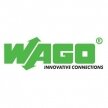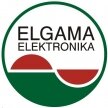-
Product Catalog
- Security and Surveillance Systems
- Automatic Circuit Breakers for Direct Current (DC) Circuits with Integrated Overload, Short-Circuit, and Voltage Stabilization Protection Functions
- Lighting with the help of electrical energy
-
Automation and Control Systems
- Automation control accessories
- Control components for automation and control systems
- Passive lifting | unloading | transporting magnets
- Signal converters | controllers for automation control | for control systems
- Touchscreens | panels for automation control | control systems
-
Power Contactors | Control Circuit Intermediate Relays
- Mini contactors for electric motor control
- Contactors | Electrical starters | For equipment control
- Electromechanical thermal relays | electrical equipment protection
- Contactors with enclosure and control buttons | for electrical equipment control
- Control coils for contactors | starters | electrical equipment control
- Adapters-converters for relays and contactors
- Additional contacts | Accessories for contactors
- Relays for electrical equipment automation control | monitoring
- Relay sockets | for connecting relays to the control system
- Relay modules | for the safe operation of electrical equipment
- Optical sensors | detectors for automation devices
- Automation control | Data transmission | Low current
- Sealing profiles | rubber | gaskets | strips
- Inflatable Liquid Storage Tanks | Reservoirs | Bladders
- Inflatable rubber plugs for sealing high-pressure plumbing pipes
- Electrical distribution and installation
- Solar Energy Generation and Management Equipment
- HVAC control solutions for heating and ventilation.
- Special products and accessories
- Other products
- Safety tools
- Quality used products
Contactors | Electrical starters | For equipment control
- Read more
Contactors are important electrical devices used to control electrical circuits and switch large loads when it is necessary to turn equipment on or off. They are widely used in industrial and commercial systems to control the operation of various devices such as motors, heating systems, lighting, ventilation, and other equipment. Magnetic and electromagnetic contactors operate using an electromagnetic field to turn electrical circuits on or off.
Contactors can be classified into various categories depending on their design, usage, and mounting methods. Magnetic contactors are a specific type of contactor that use magnetic force to turn circuits on or off, while electromagnetic contactors work in the same way but are often used with other control accessories to create more complex automation systems.
-
Read more
Main Types of Contactors
Magnetic Contactors
Purpose: Magnetic contactors are used to switch electrical circuits, especially when it is necessary to control high-power devices and equipment that operate with high voltage and current. Magnetic force is used to ensure the on/off functionality.
Working Principle: Magnetic contactors work using electromagnets that create a magnetic field, attracting or repelling a moving part. This allows contacts to be connected or disconnected, thus turning electrical circuits on or off.
Usage: These contactors are widely used in automation systems, industrial equipment where large currents and voltages need to be controlled, such as motor control, heating systems, and lighting control.
Pros:Simple operating principle.
Reliability and long service life.
Fast response to signals.
Cons:
Inability to control complex and highly dynamic processes without an additional control system.
It may be difficult to regulate current very precisely.
Electromagnetic Contactors
Purpose: Electromagnetic contactors operate similarly to magnetic contactors but are typically used in more complex and advanced systems requiring more functionality and precise control. They are also used to connect or disconnect high-power equipment.
Working Principle: The electromagnetic contactor operates on the basis of an electromagnetic field but usually contains additional components such as control relays, protection measures, and extra switches to precisely regulate circuits and control equipment operation.
Usage: Electromagnetic contactors are used in industrial control systems where precise and fast control is needed, such as in CNC machines, automated production lines, and HVAC systems.
Pros:High precision and speed.
Ability to regulate current and voltage.
Suitable for complex automation systems.
Cons:
More complex installation and setup.
Higher cost compared to simple magnetic contactors.
Industrial Contactors with Additional Accessories
Purpose: Industrial contactors are often used in combination with additional accessories such as delay relays, protection devices, and current limiters to ensure precise and safe circuit control.
Usage: These contactors are used in manufacturing, energy, logistics, and automation industries where complex control and high efficiency are required.Applications:
Industrial Automation: Contactors are essential components in industrial control systems that need to automatically control high-power devices and equipment such as motors, pumps, ventilation systems, etc.
HVAC Systems: Electromagnetic and magnetic contactors are used in HVAC systems to control equipment and ensure efficient operation in various climatic conditions.
Energy Management: Contactors are used to manage electrical supply and control, both in industrial and commercial premises. They are also often used in energy distribution panels and other electrical control systems.
Automobile Manufacturing: Automated production lines use contactors to ensure smooth production process control, such as in assembly lines, inspection stations, etc.
Lighting Control: Often used in lighting control systems to automatically turn lights on and off according to a preset schedule.
Pros:Reliability: Contactors are very reliable and durable, ensuring long-term operation even under high load.
Fast Response: These devices provide quick and accurate switching required in industrial and automation systems.
Energy Efficiency: Efficient contactors contribute to energy savings as they can precisely control the on/off timing of devices.
Versatility: Contactors can be used in both simple systems and complex automation and industrial systems requiring high-power control.
Cons:Cost: Electromagnetic contactors with additional accessories can be more expensive than simple mechanical switches or relays.
Installation Complexity: Industrial systems requiring contactors may require more complex installation and setup, increasing installation time and costs.
Limited Resistance: Some contactors may not have high resistance to moisture and dust, making them unsuitable for outdoor use without additional protection.
Magnetic and electromagnetic contactors are essential components in industrial and automation systems, used to control high-power devices and equipment. Their precision, reliability, and fast response ensure efficient control in both simple and complex systems. Although they may be more expensive and require more complex installation, these devices provide significant benefits by helping optimize energy consumption and ensuring safe equipment operation.No items found.
US IN SOCIAL NETWORKS
























